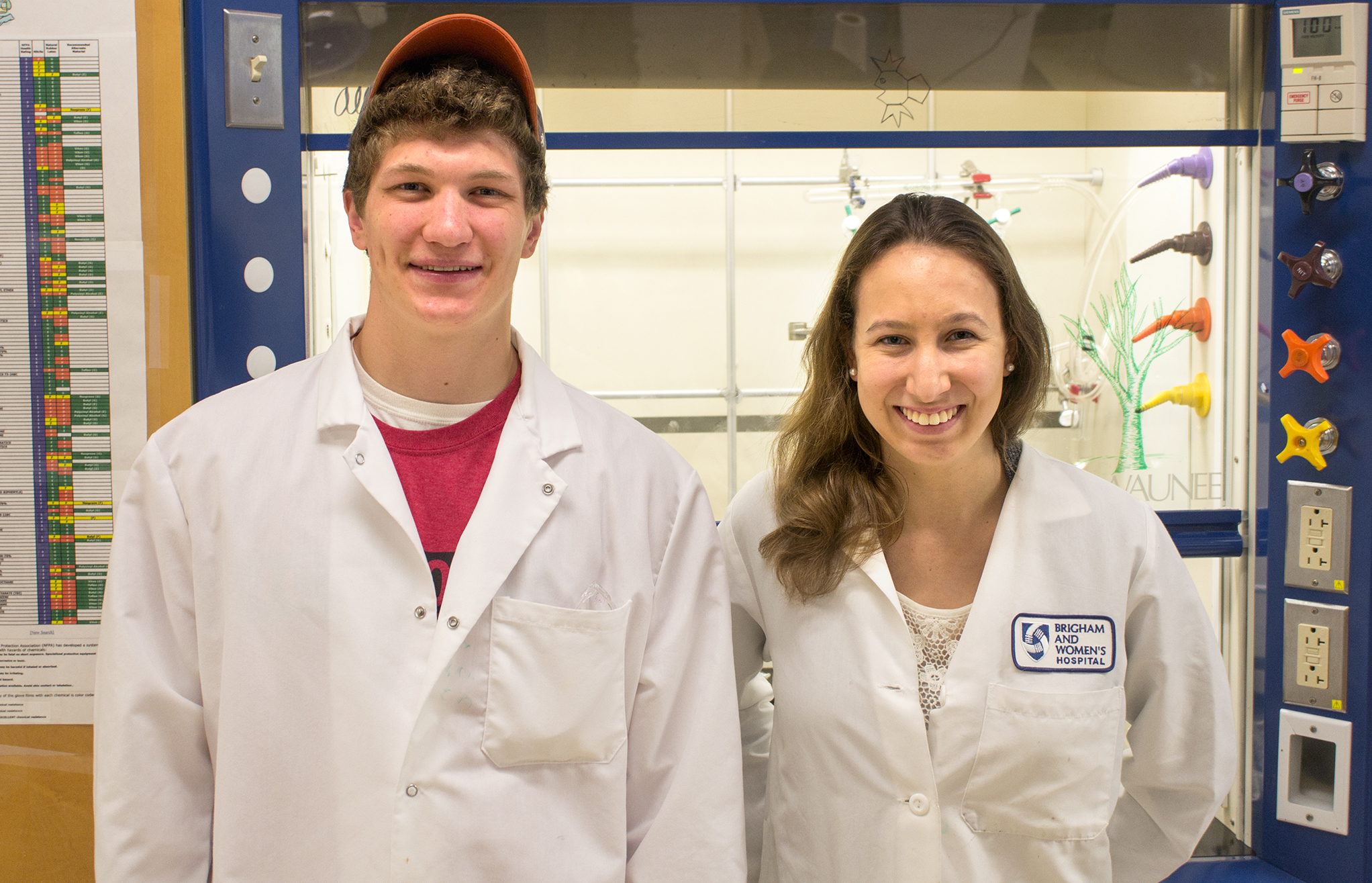
John DeGuardi ’16 and Allie Eckert ’15, both chemistry majors, are researching ‘organic radicals’ with Associate Professor of Chemistry Ian Rosenstein this summer. Generally, the students explain, electrons are paired within an atom and have opposing spins that help stabilize the atom. A radical, however, is an atom with an unpaired electron in its outer shell. Since the electron in the outer shell does not have a counterpart, the atom is unstable and highly reactive.
The particular chemical reaction DeGuardi and Eckert are looking into could eventually, DeGuardi explained, “serve as a useful and cheap reaction in the synthesis of drugs and other complex molecules.” Furthermore, according to Eckert, “One of the difficult areas of organic chemistry research is making carbon-carbon bonds. These bonds are often the ‘backbone’ of various chemicals, both biological and synthetic. Radicals can be a way to make these bonds.” In this sense, researching radicals can also help chemists better understand why and how many reactions occur.
DeGuardi and Eckert are working to create a reaction based on a chance finding by chemistry major Duy Vo ’14. Specifically, they are attempting to use nickel as a catalyst to bond together two chemicals — boronic acid and an olefin (a molecule with a double bond). Usually bonding these two chemicals together requires a complex process that involves palladium or rhodium, two very expensive materials. Using nickel as a catalyst in the manner DeGuardi and Eckert are experimenting with would be a much cheaper, simpler means of attaining the same reaction.
At this stage in the process they are testing to see whether adjusting variables like time, temperature, and the amount of the catalyst used in the process will produce higher yields, which have been relatively low so far. Eckert believes they have stumbled upon some trends that may help them achieve better results. For example, an increased temperature and ratio of olefin to boronic acid seem to contribute to higher yields. Eckert says, “It’s nice to see some hope since research can be so riddled with low success rates. But it’s the chase that’s interesting and intriguing!”
DeGuardi also highlighted the Sisyphean nature of chemistry research: “Have I found anything interesting or striking? Mostly that nothing works. You have to be persistent and undeterred by failure, which sounds cliché, but honestly, reactions fail most of the time and very rarely work as intended on the first attempt. While this can be frustrating, the uncertainty is compelling and intriguing.”
Despite the often-disappointing results, DeGuardi and Eckert appear thrilled with the opportunity to conduct chemistry research this summer. “I’m a big fan of organic chemistry,” Eckert said. “I love puzzles, which is a lot of what organic chemistry is. Radicals weren’t something that I always thought I would be interested in but they’re very exciting and there’s a lot of potential in this research.” DeGuardi emphasized the invaluable laboratory techniques and practices he has learned from this research that will help him immensely when he begins his senior thesis in a little over a year. Eckert, a rising senior, plans to work with Professor Rosenstein for her thesis beginning this fall and says that her research on radicals might carry over directly into her thesis research.
Overall, DeGuardi and Eckert’s work this summer has proved to be a challenging, yet rewarding glimpse into the realm of formal laboratory research: “This project captures the essence of science,” DeGuardi concluded. “It is not about memorizing things in a textbook, but about problem solving and critical thinking. I have certainly gained a greater appreciation for scientists in general as a result of my experiences as a researcher.”
John DeGuardi ’16 is a graduate of Ballston Spa High School (N.Y). Allie Eckert ’15 is a graduate of Oak Knoll School (N.J.).
